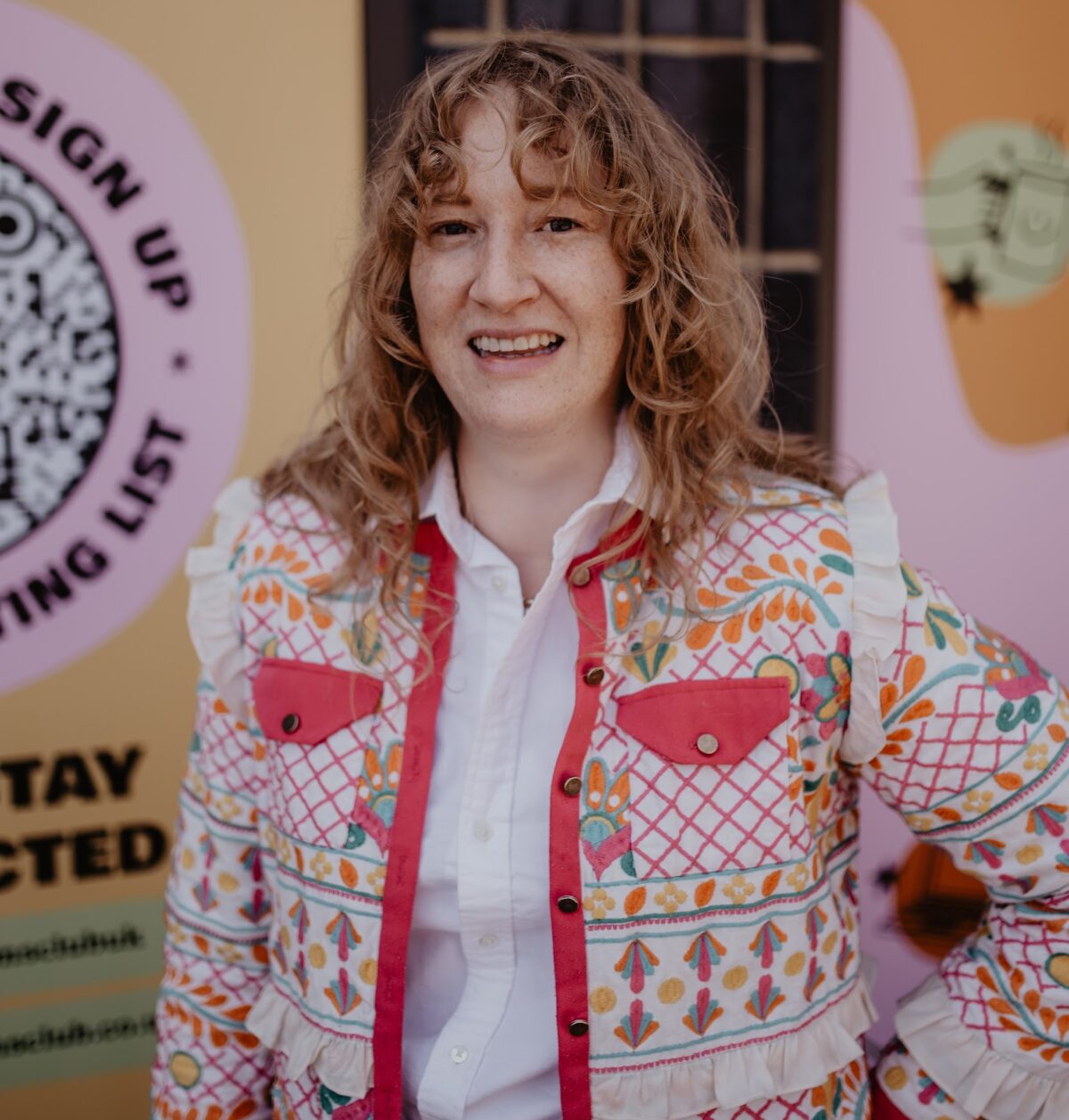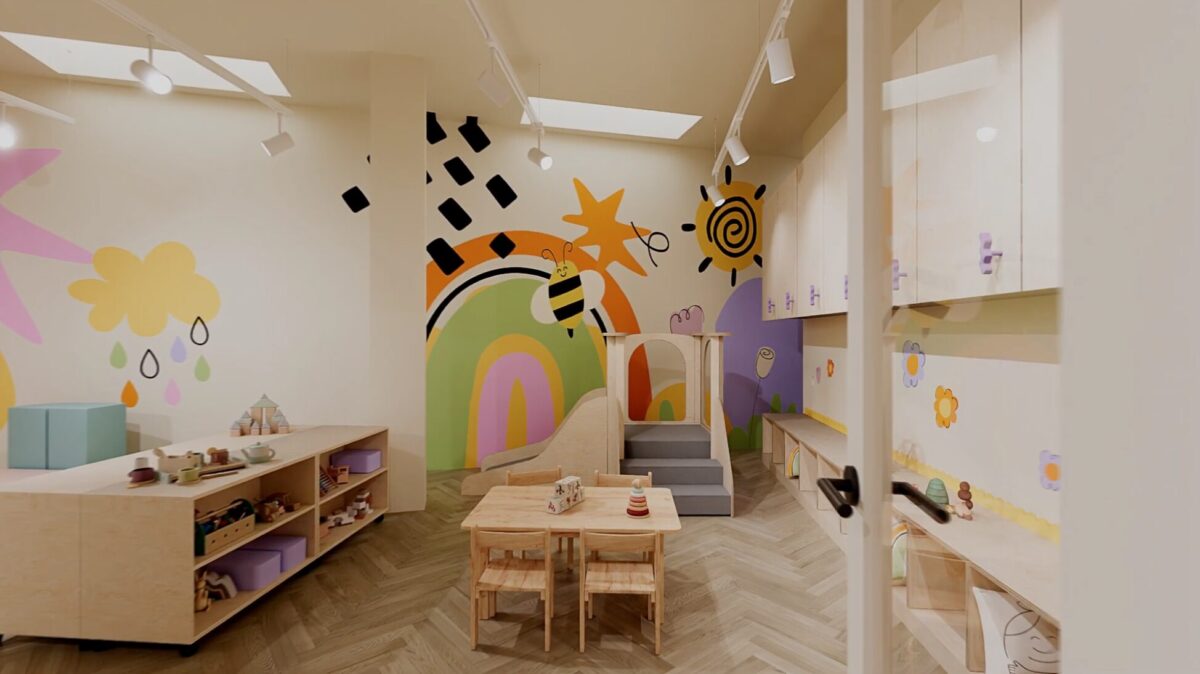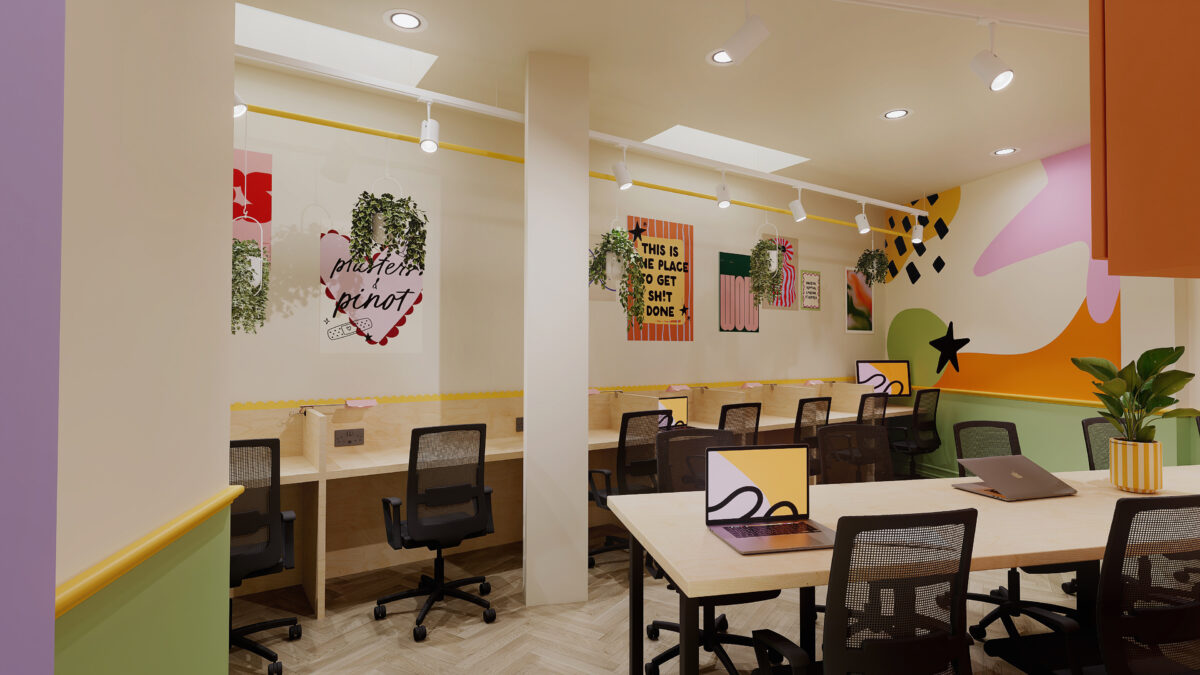About Time You Met: Jennifer Sutcliffe, Founder of The Working Mums ClubBy Alicia Grimshaw
This November sees the launch of The Working Mums Club, the UK’s first dedicated co-working and childcare space designed specifically for mothers. Bringing together nursery care, flexible workspaces, hormone-supportive meals and a supportive community, it’s a concept that reframes the idea of “doing it all” with practical, joyful solutions.
At the heart of the project is founder Jennifer Sutcliffe, who built the space she couldn’t find herself. With two young children and a career in brand communications, Jennifer turned her lived frustrations into a pioneering model that allows parenthood and ambition to thrive side by side.
In our interview, Jennifer shares the inspiration behind The Working Mums Club, her vision for reshaping how we support working parents in the UK, and the lessons she’s learned along the way:
What was the turning point that made you decide to create The Working Mums Club?

The turning point was a moment of frustration as a working mother of two under four. My daughter was born right after COVID, and I found myself juggling freelance contracts while breastfeeding in WeWorks surrounded by tech bros playing ping pong. Trying to combine parenting and working in those environments just didn’t fit, and I quickly realised that the problem wasn’t me, it was the system. I found childcare unaffordable, inflexible, and completely out of sync with the unpredictable reality of raising young children. That’s when the idea for The Working Mums Club was born. I decided to build the space I needed: somewhere women can work, parent and breathe without having to choose between their career and their child.
The UK childcare sector contributes over £6.7 billion to the economy annually, but only 24% of mothers return to full-time work after having a baby and 79% of those leave again due to a lack of flexible, affordable childcare. The Working Mums Club is designed to change that.
How did your background in communications shape the way you built and launched The Working Mums Club?
Anyone who has worked in PR knows that being organised and detail-oriented isn’t optional; it’s essential. The same is true when building a business from the ground up, which is why the two fields go hand in hand. My experience in communications gave me a deep appreciation for the power of listening and speaking to people. Conversations with other working mums, hearing their challenges and what they felt needed to change, directly shaped how we designed our flexible memberships.
I have lived on both sides of the business. I have been the mother in need and lived those sleepless nights trying to meet rigid deadlines between my young child waking up. I have felt the guilt of missing nursery pick up so that I am not the first to leave the office. I know what working mums need to actually allow them to thrive in their careers and which parts of the system don’t really work when you have a young child.
Why do you think the UK childcare system continues to be so misaligned with the realities of modern family life?

The main problem we face is the lack of change and development. Childcare policies seem to have been forgotten about and therefore haven’t evolved with the rest of the world. The system is still structured in a way that favours men, but this doesn’t actually benefit mothers or fathers in the long run. Right now, mothers are disproportionately penalised by a system that assumes “full-time work” means “child-free availability”.
We need systemic change on three fronts:
● Childcare accessibility – affordable, flexible, local provision that reflects real working patterns
● Respect – employers often see parents as a burden, needing to take time off if their children are unwell, school holidays etc. Employers should lean into more that parents are the absolute masters of multitasking, timings, organisation and delegation. Mothers especially. If mothers are nourished and supported by employers, they will thrive.
● Parental leave reform – shared, well-paid leave that encourages equitable parenting from the start
With over 1,000 children’s centres closed since 2010, what kind of long-term impact are you seeing on working parents, particularly mums?
Children’s centres are an essential and importantly free early years provision for parents. When I was growing up, we had youth clubs, and those closed and haven’t come back. The same is happening to children’s centres — once they close, they won’t return.
I relied heavily on children’s centres for both my children, as they offered flexibility. I wasn’t tied into expensive term-time courses, and if I missed a session I wasn’t financially and emotionally at a loss. They often have longer drop-in sessions, making getting out of the house with young children less of an ordeal, and they have incredibly experienced and nurturing staff on hand.
For working parents, this flexibility and affordability is a necessity, as well as the sense of community they create. We will be emulating this ethos at TWMC.
How does The Working Mums Club go beyond traditional childcare or co-working models?

The Working Mums Club has been meticulously created with real mums in mind. Our added details are what put us ahead of a traditional co-working space with an add-on crèche. As we’re working parents, we know that not everyone works 9 to 5, so we offer weekend childcare, breakfast clubs, after-school care and holiday clubs for children up to eight years old. We are offering wraparound support to allow mothers to focus, reset and thrive, whether they’re running a business, working flexibly or simply carving out a few hours to recharge.
Have you seen early signs of how The Working Mums Club is changing outcomes for mothers using it?
We are doing a staged opening, first our community cafe and co-working on Monday 6th October with various shorter childcare sessions as we are awaiting our Ofsted registration. Our core mission is to dismantle one of the biggest barriers to gender equality: the childcare gap. At present, 76% of working mums face career stagnation or drop-out because childcare and workplace flexibility simply don’t align. If we can change that, we not only empower women – we unlock huge economic potential.
We are realists and know that we won’t be able to make a direct impact on these numbers straight away, but we do however, hope to make lives easier for our members from day one. The Working Mums Club has been designed with every detail built around real mum-life, to support both mothers and their children. We offer Montessori-led nursery care, flexible memberships, and a warm, like-minded community.
My hope is that our members feel supported and are able to focus on being the best mother and worker that they can be, and leave the rest up to us.
How are you working with councils, local businesses, or partners to make this expansion possible?
Councils are fundamental in helping with our expansion and we are working very closely with Lewisham on our first site. We have been awarded an Empty Property Capital Grant and are working with them for our employability piece and their apprenticeship schemes and hiring through Lewisham Works. We are having wider conversations on future sites in the borough as well as potential JVs with other Lewisham-based businesses. Lewisham council are incredibly forward–thinking and Joe and Raymond from the Economy, Jobs and Partnerships team and razor razor-focused on promoting SMEs in the borough and are doing an excellent job. Hazel and Carole are incredibly helpful from the employment side and we’re very lucky to be working with such dedicated and visionary people.
If you could redesign the childcare and work landscape in the UK from scratch, what would it look like?
The most vital change that needs to be made is to the accessibility of childcare. If I could redesign the current system, I would make childcare affordable and flexible so that it actually reflects real working patterns. There would be no financial penalisation, whether you are unemployed or earning over a certain amount. The people who should be benefitting from childcare are parents and their children, not Private Equity firms.
Secondly, I would implement shared, well-paid parental leave, offering a national minimum of six months for fathers to encourage equitable parenting from the start. Two weeks is inexcusable for paternity leave, and leaves no room for mothers to have an equal chance at balancing work and family, as they have to take on the majority of the parenting responsibilities in the early years.







